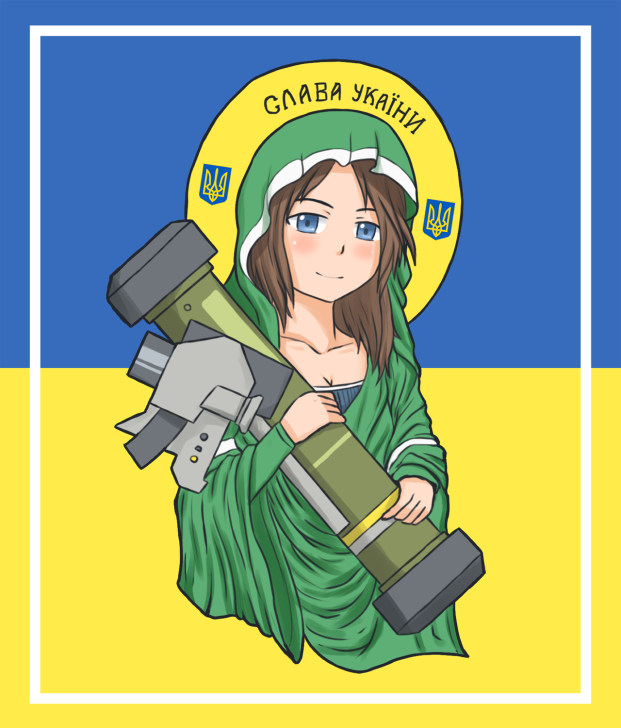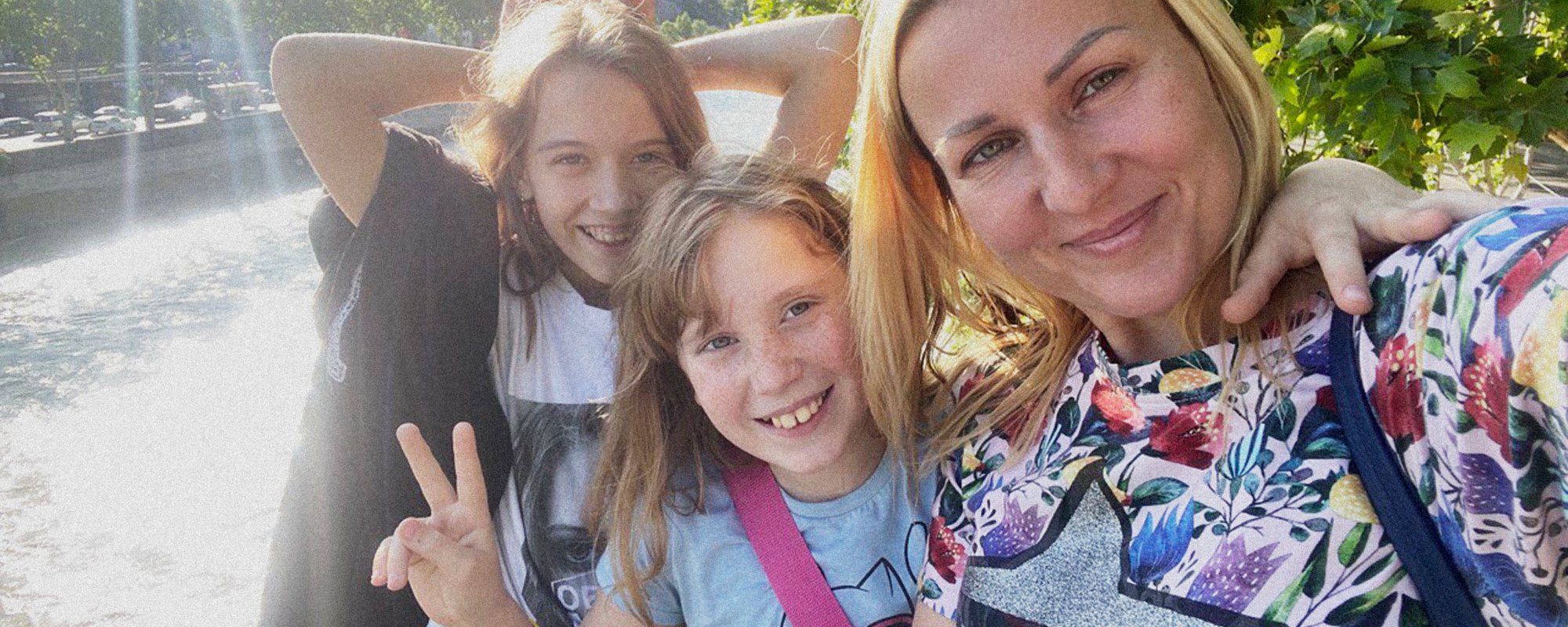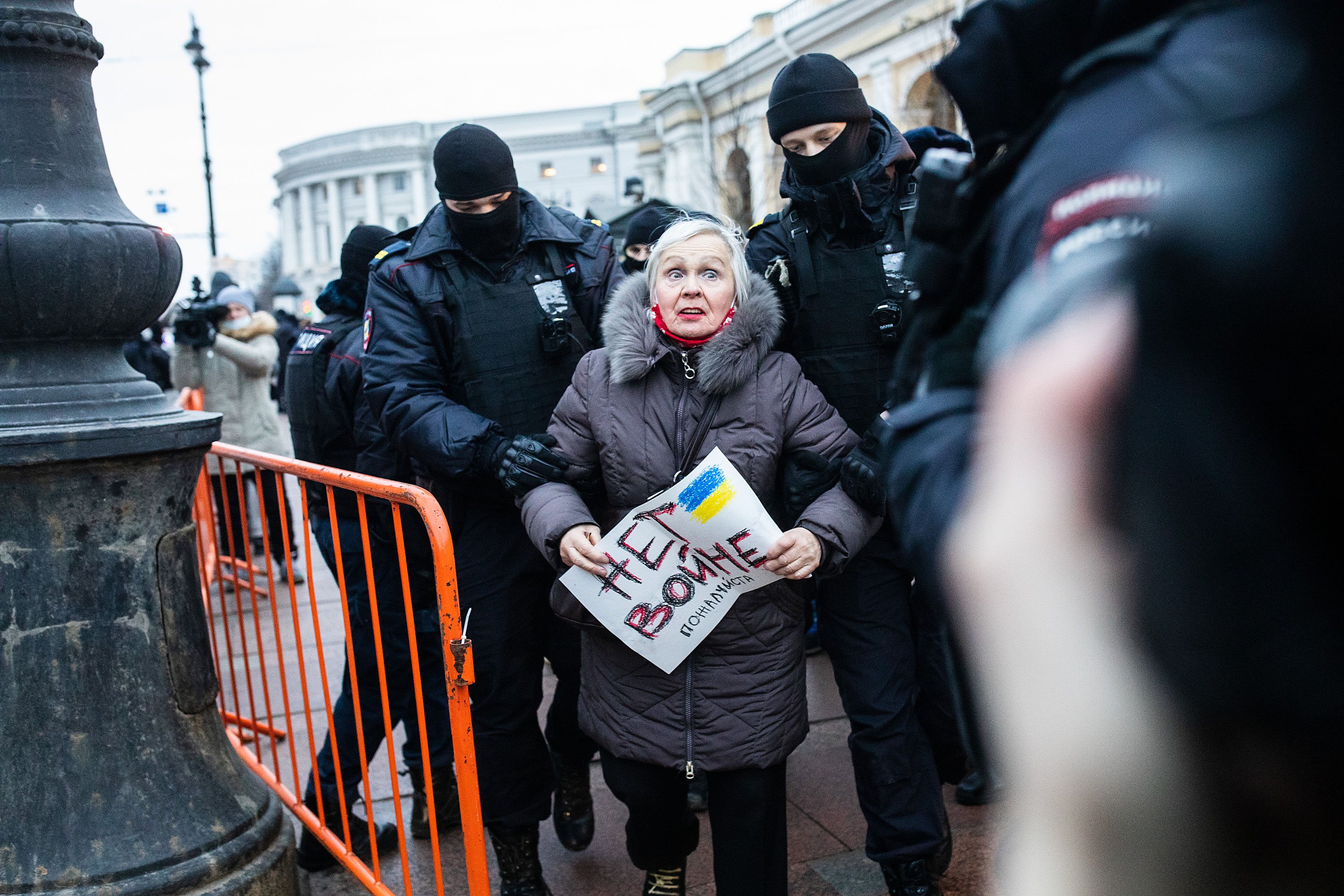In October police came to the school in Nekrasovka (a district of Moscow) and detained the fifth-grader Varya Galkina due to a report from the school principal regarding her pro-Ukraine profile picture. The girl and her mother were held for several hours without food, water, or restroom access. On 29 May, the court dismissed the complaint to recognize the actions of the police as excessive.
Tatiana Solomina, the lawyer at OVD-Info who represents the family, told us what happened to them.
Varya was detained on October 5 at 11 AM, during classes, and was interrogated without her parents' presence. She was brought in without a legal cause after that, regardless of the explanation she gave at school. The girl and her mother were denied food, water, or restroom access for four hours while they were at the department.
«I felt close attention towards us from the very beginning of the academic year <…>, Elena Zholiker told OVD-Info. — The thing is, I was called to school before because my kids didn’t attend the ‘Important conversations’ course (a special school course for promoting patriotism and traditional values that was introduced after the Kremlin’s invasion of Ukraine — translator’s note), and later because Varya had the Ukrainian flag on her profile picture. But my daughters missed ‘Important conversations’ only because they were sick at first, and then they had other things to do».
The profile picture, which also drew the attention of law enforcement, depicted ‘Saint Javelin’ — a girl resembling the Virgin Mary against a backdrop of the Ukrainian flag colors, holding a US-made Javelin anti-tank missile launcher. After Russia invaded Ukraine in 2022, the image of ‘Saint Javelin’ became a popular symbol of resistance against the aggressor. Varya explained that she simply liked the picture.

After an interview at the police station, the law enforcement officers, as explained by the lawyer, essentially searched the family’s apartment in a criminal procedure under the pretext of investigating the housing conditions. The officers from Center ‘E’ (Centre for Combating Extremism) went through phone messages, demanded to unlock Elena’s laptop and took photos of the screen.
At the court hearing Diana Mzhelskaya, inspector of the police juvenile division, who was in charge of the raid and the questioning, did not deny Center E’s participation, adding that she did not know the surnames of the officers. The inspector said that she herself asked Center E to send people, and she let them in without any identity checks upon arrival. Moreover, Mzhelskaya stated that she was unaware of Elena’s laptop being searched despite the fact that she was present in the flat the whole time, and the laptop search is reflected in the report.
As a result, the mother was accused of improper fulfillment of her parental responsibilities (under p.1 art. 5.35 of Russian Administrative Code). The family was unlawfully put on a watch list even before the court ruling on this case took effect, with the Commission on Juvenile Affairs having not voted on the measure as the procedure requires — the decision was solely made by the chair, according to Solomina.
On the day of the arrest, the police ridiculed all Zholiker’s requests to release Varya, invite a psychologist to the station and ensure that the girl would not be cold and starving. Apart from that Zholiker was not permitted to pick up her younger 9-year-old daughter from school, the police said that it was her own problem how the child would get home.
According to Elena Zholiker, after the incident Varya and her sister Sonya experienced anxiety, slept poorly, «got sick often» and missed school. Varya asked: «Mom, will they put me in prison?» The girl’s home tutor «constantly nitpicked and found fault» with her. In addition, Varya was put on an internal school register (according to her mother, such a register is usually for «truants, bullies, those who swear, behave inappropriately») and the school staff reminded her of that.
Some time later, even before the court hearing, the family left Russia. «I had been planning to leave for a long time. <…> In Russia, I felt bad and was worried about the safety of myself and my children. I projected the news about other parents [who faced persecution due to anti-war views] — like the Moskalevs — onto myself», Elena says. She adds that she wanted to take part in the court hearing in order to „say what she thinks“, and because of this, she postponed the move several times. «I bought tickets the day after the hearing, but it was postponed five or six times». After the move, the girls began to feel better.

«The state is turning from an authoritarian into a totalitarian dictatorship before our very eyes», lawyer Tatiana Solomina said. «School is at the origin of upbringing obedient and submissive citizens, accustomed from childhood not to discuss but to obey, not to argue, not to doubt, but to unconditionally believe what the elders say. This is the foundation. Any dissident, free and critical thinking is perceived as rebellion and danger. By persecuting children, two goals are immediately achieved: suppressing the child’s desire to think independently, critically evaluate the information provided, express their own opinion different from the majority, and putting pressure on parents, who are also instilled with a simple idea — raise your children in accordance with the socially and state-approved line, otherwise you will lose them (the case of Masha Moskaleva). I believe that Elena would also face a similar danger».




